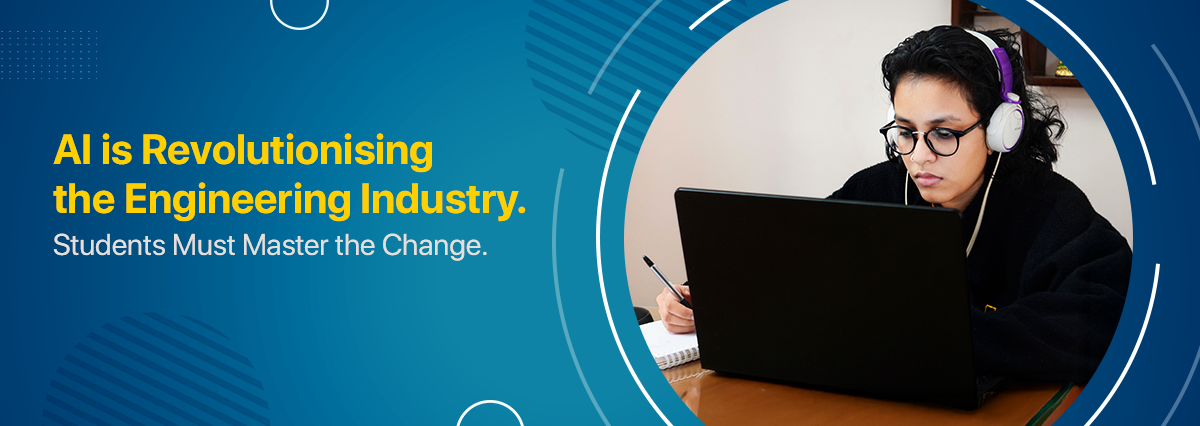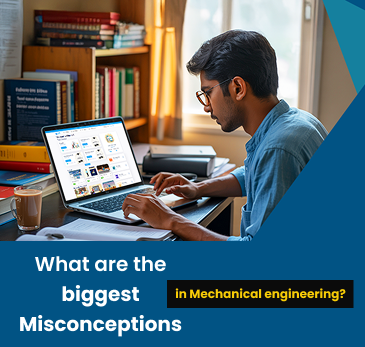Artificial Intelligence or AI is gradually changing the way engineers approach everything. This includes all the processes, from designing to problem-solving and innovation. AI can process vast amounts of data, detect patterns, and run simulations, which enables engineers to work more efficiently and with a greater level of accuracy.
Engineering students must study and analyse AI’s influence to work with it comfortably in the future. Many engineering study materials now integrate AI-driven examples to show how theoretical knowledge connects to real-world applications. Here, we will discuss more about the role that artificial intelligence will play in modern engineering.
1. Civil engineering
Civil engineering in AI is becoming a go-to tool for enhancing infrastructure efficiency and safety. For instance, smart traffic systems powered by AI can optimise the flow of traffic and reduce congestion in urban areas. Drones with AI can track construction sites, monitor progress, and flag safety risks that might otherwise go unnoticed. Engineering students must learn about these kinds of applications to face and solve the challenges they will encounter on the field.
2. Electrical engineering
AI also plays a significant role in electrical engineering, particularly in the way energy systems are designed and maintained. One example is AI-powered smart grids. These systems predict electricity demand and adjust supply in real-time, which makes power distribution more reliable and efficient. AI also helps pinpoint faults in circuits before they cause serious issues. This is critical for maintaining the reliability of electrical networks. With a growing focus on sustainability, AI helps engineers develop cleaner and more efficient energy solutions as well.
3. Electronics engineering
Electronics engineering has seen rapid advancements thanks to AI. For example, in chip design, AI can test various configurations in seconds and speed up the development process significantly. In manufacturing, AI also automates many assembly tasks, which improves speed and precision. The features on smartphones and smart devices, such as voice recognition, energy-saving algorithms, and predictive features all rely on AI to provide a more intuitive, responsive user experience.
4. Automobile engineering
The automobile industry is one of the most vital areas where AI has a profound impact. Self-driving cars have become a real and rapidly advancing field of AI research. AI also helps with predictive maintenance, alerting drivers to potential issues before they become major problems. In manufacturing, AI-powered robots speed up production processes while ensuring greater precision and safety.
5. Mechanical engineering
Mechanical engineering is another field where AI plays a major role in improving designs and boosting efficiency. AI-driven software enables engineers to virtually test mechanical systems before they are built. It helps identify potential flaws and optimise designs before production begins. Predictive maintenance tools powered by AI help keep machines running smoothly in factories. This helps minimise downtime and increase productivity.
6. Information technology (IT)
In IT, AI is essential for both keeping systems secure and improving their efficiency. Cybersecurity is one area where AI is already indispensable. By continuously analysing network activity, AI can detect and respond to suspicious actions in real-time. This is often faster than human teams could. AI also helps in data management. The volume of data generated today is massive, and AI helps sift through that data. It helps transform raw information into meaningful insights. This is especially useful for businesses that rely on data-driven decision-making. AI can also help optimise cloud services, which ensures that computing resources are allocated more effectively.
AI will continue to help engineers in the future by removing guesswork, speeding up routine checks, and warning about problems before they happen. Engineers will still design and decide, but AI will act like a tireless assistant that watches data, simulates options, and drafts first versions of work. Instead of engineers spending most time fixing mistakes or searching for information, they will spend more time thinking and improving. AI will make teams quicker, safer, and cheaper to run, and it will allow even small teams to work at a level that once needed very large groups and long timelines.
Looking for engineering study material for a stronger foundation?
We offer a comprehensive suite of engineering,
and civil engineering study materials, which gives students the knowledge and skills needed for a modern and dynamic engineering field. We focus on conceptual clarity and practical application to ensure our learners are well-prepared to meet the challenges of modern engineering. We provide study materials in different disciplines, including:
- Civil Engineering
- Electrical Engineering
- Electronics and Communication Engineering
- Mechanical Engineering
- Information Technology
- Computer Science
To enhance the learning experience of students, we integrate various interactive tools:
- Animated tutorials: Visual representations of complex concepts aid in better understanding and retention.
- Assessments and question banks: Regular quizzes and a vast collection of practice questions that help reinforce learning and prepare students for examinations.
- Ask a doubt feature: With this, students can seek clarification on challenging topics from our subject matter experts and receive a fast answer.
- Study materials: We offer comprehensive study materials that facilitate continuous learning and immediate assistance.








